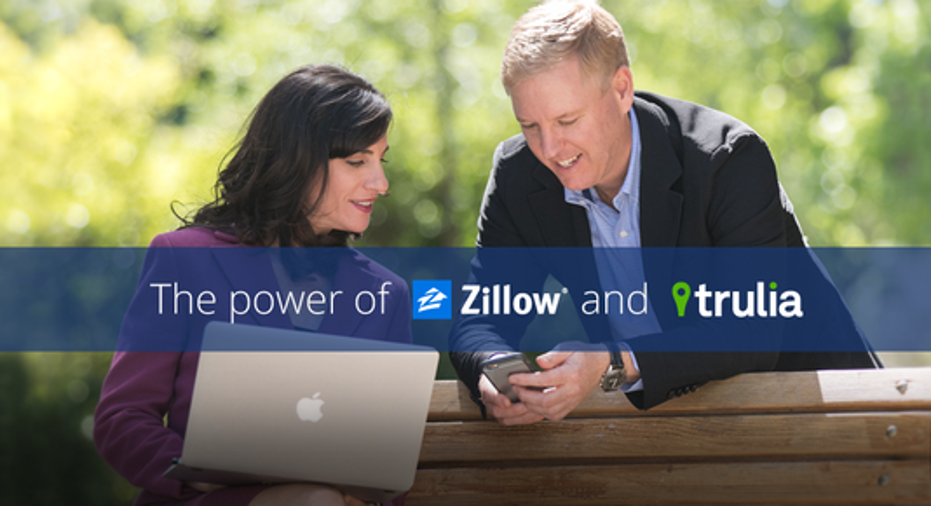Zillow Group, Inc.'s Latest Acquisition Signifies a Broader Strategy

ZILLOW CEO SPENCER RASCOFF. IMAGE SOURCE: ZILLOW.
Zillow recently acquired Naked Apartments, a New York real estate rental platform for $13 million. The new company meshes well with one already in Zillow's portfolio and signifies the bright long-term future of this growing real estate powerhouse.
Small(er)acquisitions and NYCZillow has made a number of modestly sized acquisitions over the past five years. These have generally added simplicity to the real estate purchase and rental process or focused on a geographic niche that was being underserved by a national model. The $108 million acquisition of DotLoop, which allows real estate agents and clients to share and sign documents digitally, is an example of the first.
StreetEasy and Naked Apartments were purchased to make inroads into New York City. Zillow bought StreetEasy in 2013 for $50 million to help fill a blind spot in Zillow's offerings. While Zillow was already the leader in its field nationally, it couldn't provide as compelling an offering as the New York-based StreetEasy. In the press releaseannouncing the acquisition, CEO Spencer Rascoff said, "StreetEasy has cracked the code inNew York City, and its strong, recognized local brand is a complement toZillow'sleading national brand."
The Naked Apartmentsacquisition is building on thisstrategy ofacquiring small companies with trusted brands and local knowledge. Nearly 70% of New Yorkers rent their home. Not having a robust rental platform means not maximizing success in this massive market. Naked Apartments is rentals-only, and it's difficult to imagine that Zillow, with a market cap over $3 billion, won't be able to extract well over $13 million in value from this purchase.
The New York real estate market is complex, and StreetEasy general manager Susan Daimler sees the value in teaming up with Naked Apartments, saying:
IMAGE SOURCE: ZILLOW.
Trulia is almost folded inZillow's biggest acquisition was the $3.5 billion purchase of its main competitor Trulia in 2014. Trulia played second fiddle to Zillow by providing many of the same services, including using technology to disrupt the real estate market. The acquisition was costly, and 2015 results were muddled by the complex accounting of such a sizable buy. Year-over-year comps were difficult to make sense of; in the words of Zillow management,"2015 was about integrating; 2016 is about innovating."
The end result of bringing in Trulia was the creation of a dominant company. Zillow Group Brands, which includes Zillow, Trulia, StreetEasy, and HotPads, had almost 124 million monthly active users in Q4.Additionally, "Zillow Group brands now represent approximately 70% market share of all mobile exclusive visitors to the category." With its transformative move complete, Zillow can now focus on deals like the one for Naked Apartments as it builds out its long-term plan for market domination.
IMAGE SOURCE: ZILLOW.
Two-tiered future?On a national level, Zillow and Trulia are able to wield resources not available to smaller competitors. The combined Zillow Group has technologies, a sales team, and brand recognition that will make it difficult for an upstart to match. The company is growing its average monthly revenue per advertiser at a robust clip -- 29% in the fourth quarter of last year compared to the year-ago period -- and has a base of over 90,000 agent advertisers.
By contrast, StreetEasy and Naked Apartments provide the blueprint for how Zillow can expand its local presence. If a local company cracks the Chicago, L.A., or Miami real estate market, Zillow can use its scale and resources to acquire it, giving it access to the technology and support of the larger company while allowing it to retain its local branding. It's not difficult to imagine a future where Zillow/Trulia controls vast swaths of the country while smaller companies, operating under the Zillow umbrella, function in locations where local knowledge is paramount.
It's unlikely that Naked Apartments was ever going to rise to a level where it could compete with Zillow. Taking a $13 million payout (with only 13 employees), accepting employment at the larger company (with all of the benefits that entails), and getting to keep doing the same work with more support seems like a no-brainer. Zillow is in a great position to grow its main business and strategically add through acquisition. I'll be holding my shares for a long time, and I recommend taking a deeper look at the company.
The article Zillow Group, Inc.'s Latest Acquisition Signifies a Broader Strategy originally appeared on Fool.com.
James Sullivan owns shares of Zillow Group (A shares) and Zillow Group (C shares). The Motley Fool owns shares of and recommends Zillow Group (A shares) and Zillow Group (C shares). Try any of our Foolish newsletter services free for 30 days. We Fools may not all hold the same opinions, but we all believe that considering a diverse range of insights makes us better investors. The Motley Fool has a disclosure policy.
Copyright 1995 - 2016 The Motley Fool, LLC. All rights reserved. The Motley Fool has a disclosure policy.



















